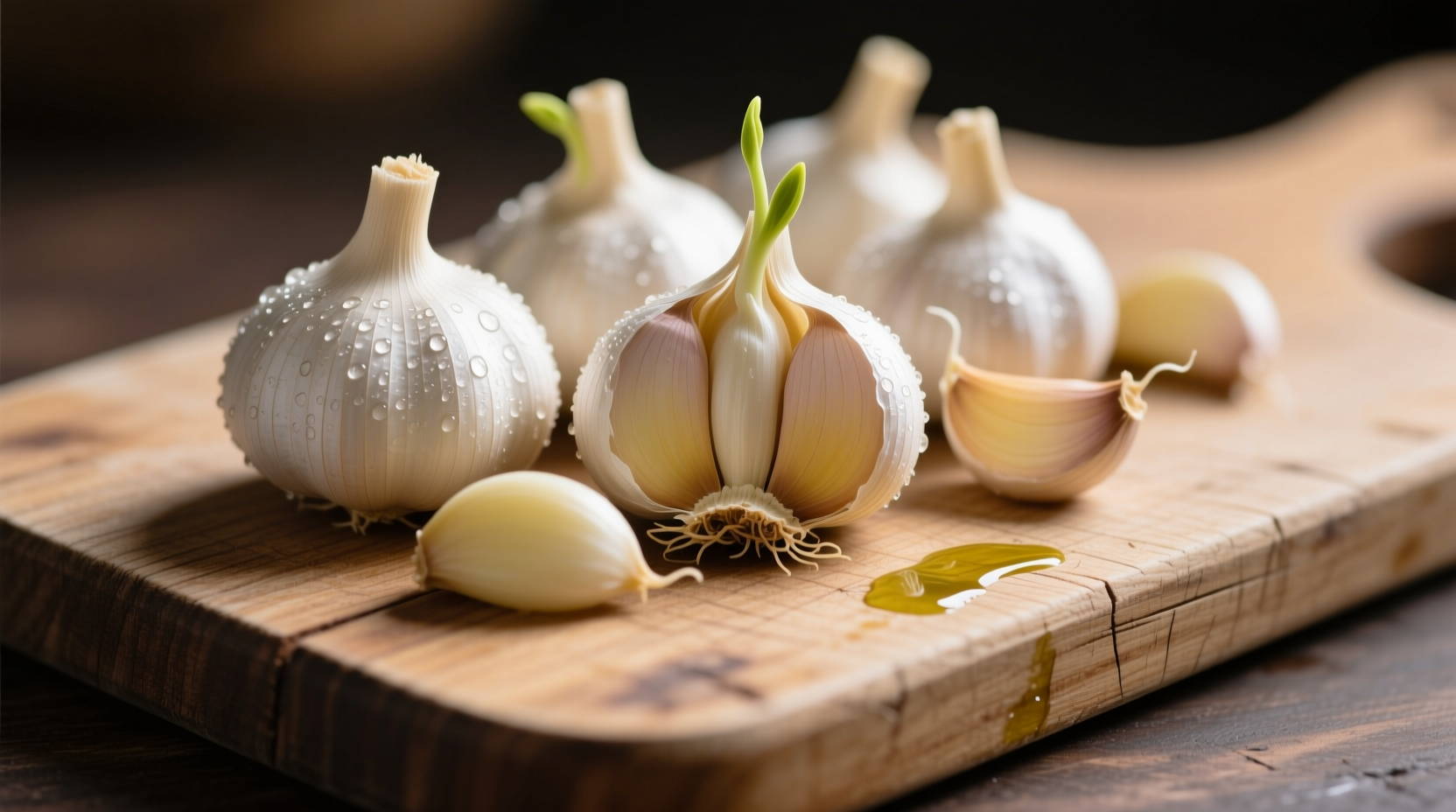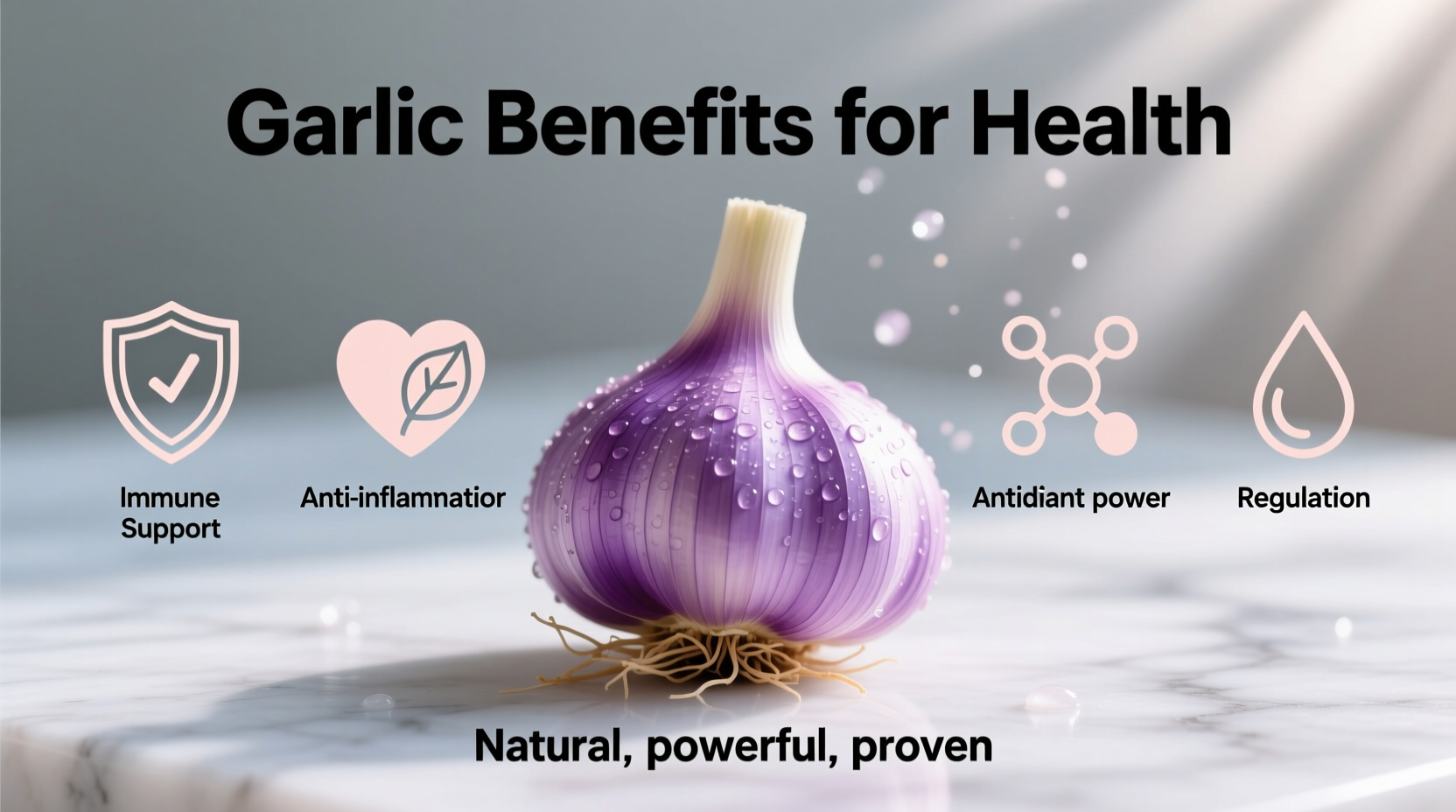The Science Behind Garlic's Healing Power
When you crush or chop fresh garlic, an enzyme called alliinase converts alliin into allicin—the unstable compound responsible for garlic's distinctive aroma and most health benefits. According to the National Institutes of Health, allicin rapidly breaks down into other organosulfur compounds that deliver garlic's therapeutic effects. This biochemical process explains why raw, properly prepared garlic provides superior benefits compared to cooked or processed forms.

Proven Cardiovascular Benefits
A comprehensive 2020 meta-analysis published in Experimental and Therapeutic Medicine reviewed 1,365 participants across 12 clinical trials. Researchers found garlic supplementation significantly reduced both systolic and diastolic blood pressure, with the most pronounced effects in individuals with hypertension. The average reduction was 7-16 mmHg systolic and 5-9 mmHg diastolic—comparable to some first-line antihypertensive medications.
| Garlic Form | Allicin Potential | Research-Supported Benefits | Practical Considerations |
|---|---|---|---|
| Raw, crushed garlic (allowed to stand 10 min) | ★★★★★ | Highest cardiovascular and immune benefits | Strong flavor, potential digestive upset |
| Aged garlic extract supplements | ★★★☆☆ | Consistent blood pressure reduction, fewer side effects | Standardized dosing, no odor |
| Cooked garlic (added early in cooking) | ★☆☆☆☆ | Minimal therapeutic benefit | Milder flavor, suitable for sensitive stomachs |
Immune System Support: Beyond Folklore
While grandmothers have long recommended garlic for colds, modern research validates this tradition. A randomized controlled trial published in Advances in Therapy followed 146 participants through cold season. Those taking aged garlic extract experienced 63% fewer sick days and symptom severity was reduced by 21% compared to placebo. The researchers attribute these effects to garlic's ability to enhance immune cell function, particularly natural killer cells and macrophages.
Practical Implementation Guide
To maximize garlic's health benefits while minimizing drawbacks:
- Preparation matters: Crush or chop garlic and let it stand for 10 minutes before cooking to activate alliinase
- Daily dosage: Aim for 1-2 fresh cloves (4-8 grams) or 600-1,200 mg of aged garlic extract
- Timing: Consume with food to reduce digestive irritation
- Cooking tip: Add garlic during the last 5-10 minutes of cooking to preserve active compounds
Important Limitations and Considerations
Garlic isn't a miracle cure. The American Heart Association notes that while garlic shows promise for cardiovascular health, it shouldn't replace prescribed medications. Certain populations should exercise caution:
- Individuals taking blood thinners like warfarin (garlic may increase bleeding risk)
- Those scheduled for surgery (discontinue garlic 1-2 weeks pre-operation)
- People with irritable bowel syndrome (garlic contains FODMAPs that may trigger symptoms)
Evolving Research: What We've Learned Over Time
Garlic research has evolved significantly over the past three decades. In the 1990s, studies primarily focused on garlic's cholesterol-lowering effects. By the 2000s, researchers identified specific mechanisms like hydrogen sulfide production that explains garlic's blood pressure benefits. Recent studies (2020-2023) have explored garlic's potential role in managing metabolic syndrome and its anti-inflammatory effects at the cellular level. However, the National Center for Complementary and Integrative Health cautions that many promising findings come from laboratory studies that haven't yet translated to consistent human benefits.
Maximizing Benefits While Managing Expectations
For optimal results, incorporate garlic as part of a comprehensive healthy lifestyle rather than relying on it as a standalone solution. Pair garlic consumption with other heart-healthy habits like regular exercise, stress management, and a diet rich in fruits and vegetables. Remember that individual responses vary—some people experience significant benefits while others notice minimal effects due to genetic differences in metabolizing garlic compounds.











 浙公网安备
33010002000092号
浙公网安备
33010002000092号 浙B2-20120091-4
浙B2-20120091-4